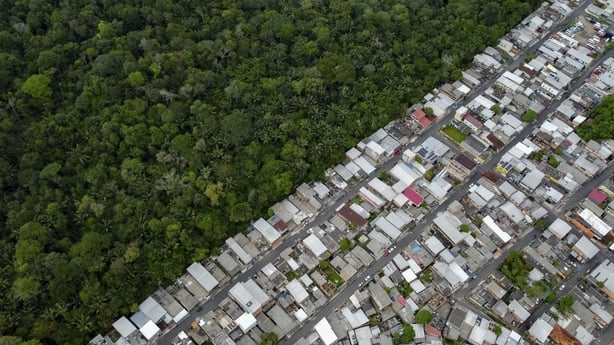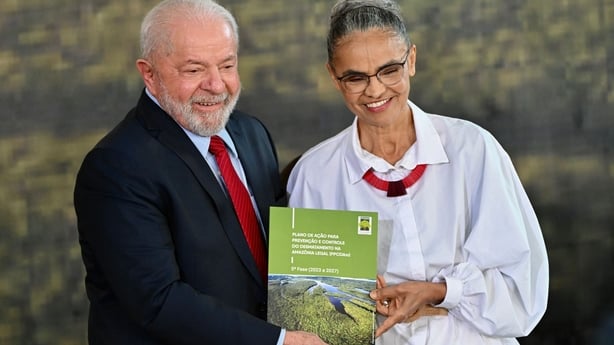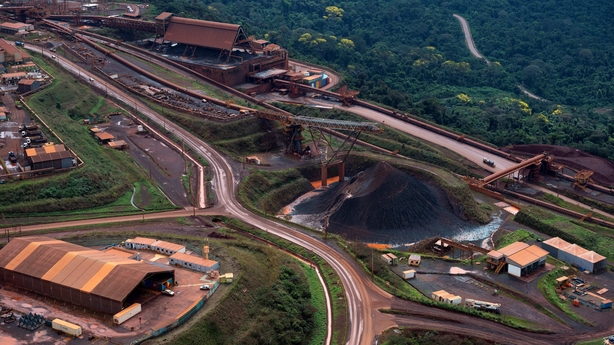Deforestation of the Brazilian Amazon fell by one-third in the first six months of President Luiz Inacio Lula da Silva's administration compared to the same period of last year, the government has said.
The 33.6% drop is based on satellite images captured by the National Institute of Space Research, which said that from January through June a total of 2,649sq/km of rainforest were felled.
That is compared to the 3,988sq/km that came down in the first six months of 2022, when far-right president Jair Bolsonaro was still in power.
"We have reached a steady downward trend in deforestation of the Amazon," Environment Minister Marina Silva told a news conference.

In the month of June itself the fall was even more pronounced - 41% compared to June 2022.
Ms Silva said these good results stem from Mr Lula's policy of fighting climate change and deforestation of the world's biggest rainforest.
During Mr Bolsonaro's period in office from 2019 to 2022, deforestation of the Amazon shot up 75% compared to the average of the previous decade.
Last month Mr Lula launched an ambitious plan to combat illegal deforestation of the Amazon, days after opposition politicians in Congress won passage of changes that stripped some key powers from the environment ministry.

His leftist government pledged to seize half of all land deforested illegally in areas designated as having special environmental protection, set aside three million hectares (7.4 million acres) of protected land by 2027, and strengthen Brazil's network for environmental monitoring.
"The government is acting again, applying the law and protecting the unique treasure that is the Amazon. That is making the deforestation numbers go down," said Marcio Astrini, leader of the Climate Observatory environmental group.

Mr Lula has also tried to persuade the world's wealthiest countries to pay for initiatives designed to safeguard the rainforest, adding to work done by Norway and Germany through the so-called Amazon Fund.
Environmental protection is a key issue as the South American trade bloc Mercosur negotiates a long-delayed free trade accord with the European Union.
The EU recently made new demands of the four Mercosur countries to fight environmental crimes.


